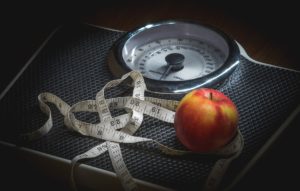Does Cutting Fat Out of Your Diet Work?

Think about it, cutting fat out of your diet will make you lose weight, right? Well, at least that’s what we have been led to believe by the many diet fads that advocate for zero fat when it comes to weight loss.
However, when you get down to the nitty-gritty of the food group that is fat, the truth about fats and dieting isn’t as black and white as most of us think. Yes, it’s true that fatty foods can come with the risk of increasing body fat. It’s also true that completely cutting fat out of your diet doesn’t bring about fast weight loss.
So, before assuming you know everything there is to know about fat, here are some unbelievable facts that will have you thinking twice about totally cutting fat out of your diet.
Why Cutting Fat Out Of Your Diet Doesn’t Lead to Weight Loss
Some Fats Are Actually Good
Not all fats are enemies of weight loss. In fact, some fats are actually good for the body. These include the ‘Polyunsaturated fats’, which can be found in fish, corn and sunflower oil, and ‘Monounsaturated fats’ which are present in foods such as avocados, peanuts, olive oils and sesame seeds.
Polyunsaturated fats lower bad cholesterol, prevent buildup of plaque in arteries, and prevent belly fat, while monounsaturated fats deliver several benefits ranging from improved mood to reduced risk of heart disease. The bad fats on the other hand, are the Saturated fats (sourced from meat and dairy products) and Trans fats (chemically altered unsaturated fats). Both of these are known to increase risk of heart disease.
Fat is also an important component of the body. The average person has around 10 to 20 billion fat cells with every cell in the body being surrounded by a membrane made up of fats. With that much adipose tissue, the body needs fat to function properly.
Fats help with several important functions, from facilitating proper immune system function, to helping the body absorb vitamins A, D, E, & K., to being a major source of calories. Cutting out fat out of your diet means you’ll be forgoing all of these vital benefits and consequently putting your health at risk.
Why Is Belly Fat So Difficult To Lose? (Free Report)A Bit Of Fat Can Boost Weight Loss
A little known fact about weight loss is that you actually need fat to lose fat! Fat takes longer to digest and therefore leaves you feeling satisfied for longer. So, including a bit of the good kind of fat in your meals will leave you feeling fuller for longer and thus cause you to eat less overall. By eating less, you’ll end up lowering your calorie intake, which is good for weight loss.
Another added benefit of fat is that it provides the body with more energy compared to the other food groups. A gram of fat has 9 calories while proteins and carbohydrates only have 4 calories per gram. The extra energy from fat helps fight fatigue, a benefit that can help you to exercise harder or more frequently.
Fat Can Make Dieting Easier
It’s no secret that healthy foods don’t always taste as good as the not so healthy options. For example, the rich and creamy taste of foods like ice cream and chocolate can’t be compared to the taste of something like a serving of fruit salad or a plate of vegetables regardless of how well a meal is prepared.
The thought of having to forgo favorites such as pizza and cake for something less tasty can make it difficult to stick to a weight loss diet. A little fat however can go a long way in making healthy eating more enjoyable. Healthy options like a little tasty olive oil or the unsaturated fats found in avocados can add flavor to healthy meals thus reducing chances of straying from a weight loss diet.
Should You Be Cutting Fat Out Of Your Diet?
From boosting overall health, to helping lower calorie intake, to keeping your energy up, the benefits of fat are not only many but they can actually help trigger more weight loss. Therefore, if weight loss is your goal, you should treat the good fats as your friend.
The trick is to apply portion control when implementing fat into your diet. Nutritionists advice completely eliminating Trans fats from your diet, limiting saturated fats to no more than 10% of your daily calories, and keeping the good fats at 20% to 35% of daily calories.
Do “Healthy” Foods Force You to Gain Weight?
The FDA, the US Food and Drug Association, regulates the claims that can be made about food and drugs. These regulations have the force of law. But there’s one ingredient that they don’t really regulate. This ingredient is the secret ingredient that makes food so tasty you can’t stop eating it—even though you know you should. It’s used in almost every “low-fat” food because if those “low-fat” foods weren’t full of it, you couldn’t stand to eat them.
To see if you’re eating these foods take this quick quiz and get a customized action plan for your weight loss type.


Pingback: For More Energy Eat Less Sugar And Salt - How To Get Flat Abs Fast
Pingback: Why Am I Too Tired To Exercise? - How To Get Flat Abs Fast
Pingback: The Essential Steps Of Balanced Nutrition For Women - How To Get Flat Abs Fast